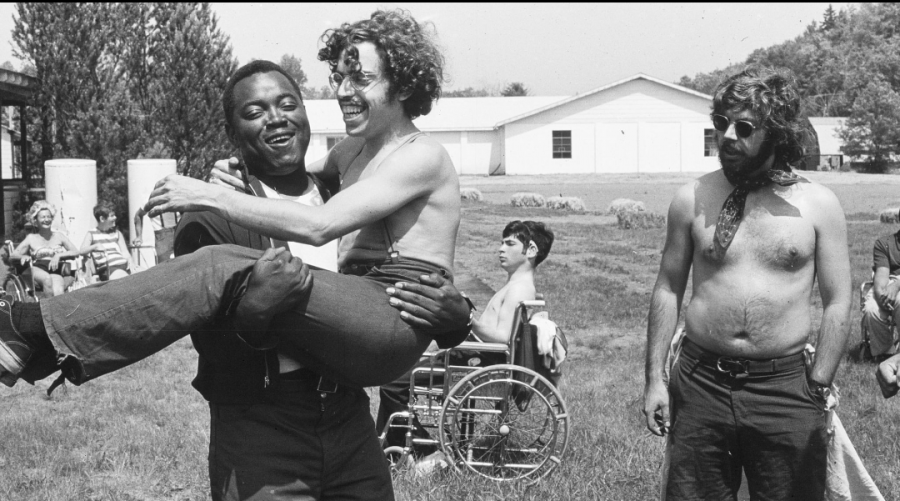Disability Services screens ‘Crip Camp’ for Disability History Month
October 26, 2021
In the state of Washington, every October is Disability History Month, a month dedicated to promoting awareness and understanding of disability history and people with disabilities. CWU’s Disability Services screened the Netflix original documentary “Crip Camp: A Disability Revolution” in the SURC last Thursday as a part of their effort to inform students about the history of disabled people.
“We wanted to help educate students about some disability history and also encourage them to find pride in their identity as students with disabilities,” Wendy Holden, director of disability services, said. “And maybe inspire them to advocate for accessibility on campus.”
The film follows individuals from Camp Jened, a small summer camp down the road from Woodstock which ran from 1951 to 1977, that provided the experience of summer camp to teens and young adults with disabilities.
The bond that formed among the campers eventually led them to become activists in the disability rights movement, where they conducted multiple sit-ins to push for the signing of the 504 regulations, including a 25-day sit-in inside of San Francisco’s HEW building. The sit-in is still considered the longest in a federal building to date.
“This was one of the first major civil rights legislations that impacted people with disabilities,” Holden said. “I think the way that they mobilized, the way that they worked together is an amazing example of communities supporting each other.”
Holden said she thinks it can be difficult to spread awareness of disability history due to the stigma around disability, even though, according to the CDC, one in four people in the US live with a disability.
“Disability is a population that anyone can join at any time,” Holden said. “I think people don’t recognize it as an aspect of diversity. I think they see it as a tragedy or something to be pitied or feared.”
After the screening, attendees formed a circle to discuss the film, what impacted them, and what work still needs to be done in the fight for accessibility. James Thomas, a graduate student in the literature and teaching program, said that the end goal for people with disabilities is more than just awareness.
“It’s not acknowledging or finding ways to accommodate,” Thomas said. “But it’s finding ways for people to pursue self-actualization for themselves.”
The group also discussed some of the outdated buildings on campus that aren’t as easily accessible for students with certain disabilities, and some of the difficulties students with disabilities have faced getting the same opportunities to work or learn as students without disabilities.
“We can acknowledge that yeah, the laws are great, but they don’t work all the time,” Jennifer Dudley, Disability Services’ access specialist, said. “Even now, 31 years after the ADA (Americans with Disabilities Act) was passed … there’s still a lot to do.”
Holden encourages anyone who wants to help advocate for students with disabilities in the CWU community to sign up for Accessibility Belonging Learning and Equality (ABLE), an organization on campus that’s currently inactive but looking for signups.
Watch for more coverage in The Observer.


